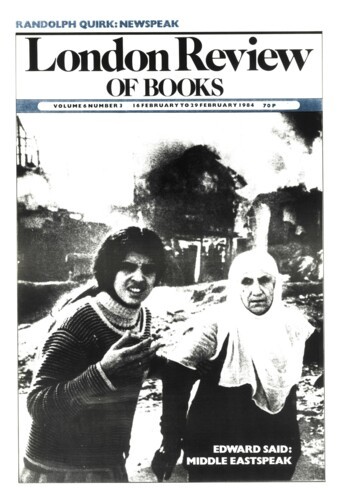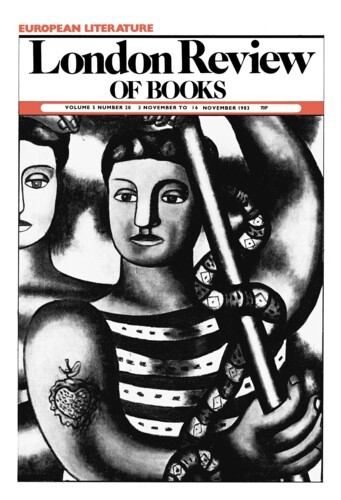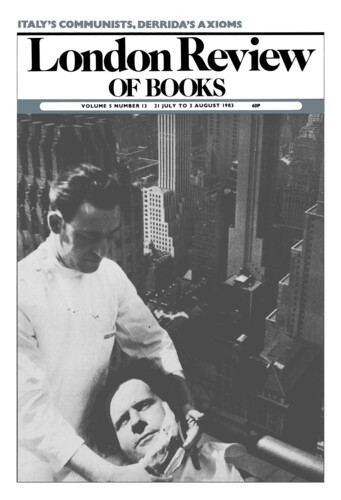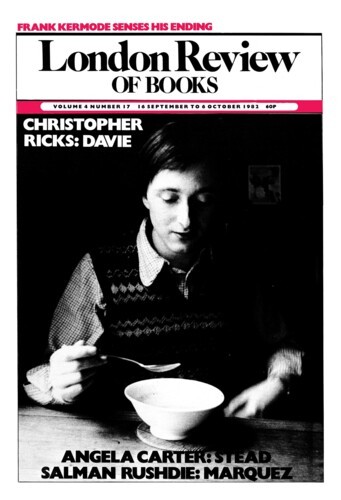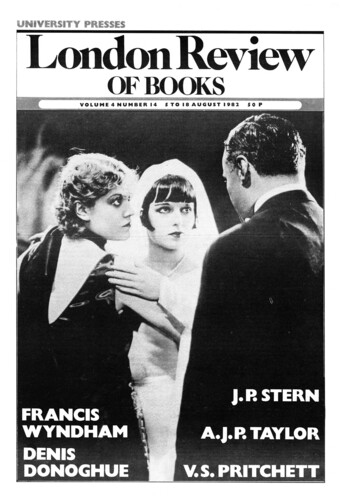There can be few poets in the whole of European literature whose lives were so single-mindedly dedicated to the pursuit of poetry as was the life of Rainer Maria Rilke. Poetry was the centre and margin, ‘the field and hedgerows’, of his existence. The men whose friendships he cherished, the host of women admirers and aristocratic protectors he met and corresponded with, the women who were or may have been his mistresses, even the children he enchanted with his stories – all these form a network of intimate relationships stretching across almost the entire Continent and centred on the old Austro-Hungarian monarchy, whose decay, collapse and aftermath he witnessed. This network – the 115 women mentioned in some detail in Wolfgang Leppmann’s biography by no means exhaust those listed in Rilke’s own address-book – made his life and poetry possible when, for the last time in the history of Europe, social and economic circumstances permitted the freedom from routine, institution and permanent attachment which he needed, without his having to pay the price of squalor and anarchy in return. What gives meaning to the volumes of notes and letters, dedications, memoirs and inscriptions in which all these relationships are preserved is Rilke’s preoccupation, not with himself, but with his poetry. His immense correspondence, J.F. Hendry writes, was ‘vital to his poetry in the way that reviews, essays and lectures are to other poets’ (though the essays, reviews and lectures that he did write fill a sizeable volume). Despairing confessions of failure, self-exhortations to patience, the jubilant acknowledgment of gifts of poems – all set down in the poet’s exquisite round hand (the hand he adopted at the same time as he Germanised his name from René to Rainer, in 1897): these form the substance of poems and letters alike. Here is an example from a letter to ‘Benvenuta’ (15 February 1914), recalling his encounter with Eleonora Duse: ‘but there was so much that was doomed in each of us – piling it up together we ended by standing on top of it as on a pyre that has been raised night and day, in air that was pure but lifeless, and though we did not say so to each other, yet neither of us could imagine any future except perhaps that God might finally set light to this foundation that crackled with misery and destroy us and himself in the flames’. More than fifteen years later the pyre on which the self is destroyed became the central image of the last poem Rilke ever wrote.–
There can be few poets in the whole of European literature whose lives were so single-mindedly dedicated to the pursuit of poetry as was the life of Rainer Maria Rilke. Poetry was the centre and...
